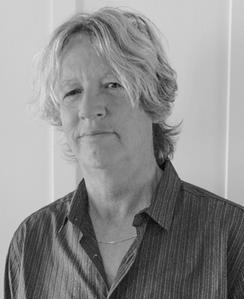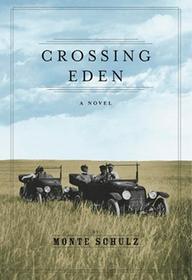 Monte Schulz, son of Peanuts creator Charles M. Schulz, wrote his first novel, Down by the River, in 1990. He has since written three novels set during the Jazz Age: This Side of Jordan, The Last Rose of Summer and The Big Town, recently published as one volume in Crossing Jordan (Fantagraphics, $34.99, 9781606998915). Schulz has owned the Santa Barbara Writers Conference since 2010 and taught writing classes at University of California, Santa Barbara, where he earned his M.A. in American Studies.
Monte Schulz, son of Peanuts creator Charles M. Schulz, wrote his first novel, Down by the River, in 1990. He has since written three novels set during the Jazz Age: This Side of Jordan, The Last Rose of Summer and The Big Town, recently published as one volume in Crossing Jordan (Fantagraphics, $34.99, 9781606998915). Schulz has owned the Santa Barbara Writers Conference since 2010 and taught writing classes at University of California, Santa Barbara, where he earned his M.A. in American Studies.
What inspired the story behind Crossing Eden?
My novel derived from several literary works I read in my early '20s, most given to me by my father back then--Of Time and the River by Thomas Wolfe; The Spoon River Anthology by Edgar Lee Masters; The Complete Poems of Carl Sandburg; East of Eden by John Steinbeck; Raintree County by Ross Lockridge Jr.; and The Stories of Ring Lardner. Each is a portrait of America crossing from a rural to an urban nation. They are poetic in language and philosophical in their artistic sensibilities. That period was also the time of my parents' youth, and I used the book as a way to tell some of their story as part of America's story.
How much research did you do for the book?
Early on, I decided that this period in American history was told best through primary documents. I quit reading modern histories of the '20s and began instead to study newspapers, novels, magazines, letters and essays from the time, and take notes from each. For one chapter alone, I read, made notations, and consulted more than 58 books. At a flea market, I found a Montgomery Ward catalog from 1923. I read three books about Prohibition published during the '20s; I found 12 books on Spiritualism and séances published between 1900 and 1930; I bought a library-bound edition of Collier's magazine for June-December 1929, and photo-copied many pages from newspapers put out during that summer. I have dozens of books on railroads, interurban trolleys, airplanes, automobiles, schools, health, science, law, etc., and hundreds of letters from my grandparents and great-grandparents, all of which I used to capture and recreate the spirit and sensibility of that age. I even drew names from the Cal Berkeley yearbook of 1900 for the many, many characters in my book.
What does it mean to write a "Great American Novel?"
Back in 1942, writing about Thomas Wolfe and Of Time and the River, Thomas Lyle Collins suggested the Great American Novel should "capture completely the spirit and meaning of this immense and bewildering new society of ours." I took that to mean such a novel must do its utmost to portray as broad a canvas of this nation as possible, with all its disparate geography and classes, its character and flaws, ideals and failures. With that in mind, I created a novel (somewhat like John Dos Passos's U.S.A.) with three interconnected story lines occurring simultaneously in three separate locations: one urban, another along the states of the Middle Border and a third in a small town in east Texas. I took up the challenge of describing a tapestry of American life, both macrocosm and microcosm, small lives and big, urban and rural, glittering and downtrodden. I wanted my novel to be both story and philosophy, emotional and instructive. It took 10 years to develop the first draft and the manuscript was 1,000 pages. I do believe I answered Collins's call. Your father is Peanuts creator Charles Schulz. How did your father inspire your career?
Your father is Peanuts creator Charles Schulz. How did your father inspire your career?
My father was the true inspiration to my work by showing me the way to beautiful American writing. He had me read wonderful lyric passages in Of Time and the River and The Grapes of Wrath. He persuaded me to dream of writing my own lovely paragraphs, my own great novel. Along the way, he supported my 10 years in the literary wilderness and before he died, told me that my book, this novel, was raising the level of art in the family. His inspiration guided my imperfect hand.
Your father makes a cameo in Crossing Eden. Why was it important to include him in this story?
Since part of this novel is my father's story, I wanted to include him (and other people I've known) in this book. Originally he was in two scenes: one, pitching on the mound of a sandlot baseball game, a scene that failed to survive my ruthless editing of this enormous manuscript; and secondly, where he still resides, in a mention of my grandfather's Family Barbershop in St. Paul, Minnesota, where my character, Harry Hennesey, would get his haircut "by a cigar smoking German fellow whose young son drew funny little pictures."
Also, of the four interludes in the novel, three of them are basically my father's voice from an interview I did with him many years ago. Likewise, his life inspired the novel's epilogue, A Republic of Dreams, that I wrote after his death in February of 2000.

